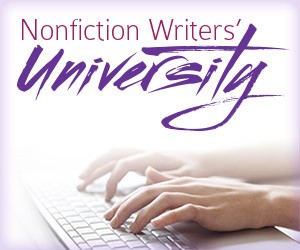 For years I kept a journal. I wrote in it religiously. In fact, I still have many of those journals on a shelf in the closet of my office.
For years I kept a journal. I wrote in it religiously. In fact, I still have many of those journals on a shelf in the closet of my office.
I would sit down in the morning and, as part of my morning routine, after exercise and meditation, I’d write in my journal. I also tried doing this as Julia Cameron’s (The Artist’s Way) Morning Pages exercise. For a long time, I journaled by hand. Later, I used the computer and typed Word docs that I stored in a folder.
Some years ago, however, I gave up this practice almost entirely. I now only use it occasionally when I meditate and want to record the messages I get during meditation. Let me tell you why.
Although journaling provides a wonderful way to “warm up” your writing muscles and to rid your mind of the clutter that can stop you from focusing on your “real” writing work for the day, it also can serve as a distraction from that real work. I find many of my clients end up spending an hour or so each day journaling, and then they complain they don’t have time to work on their books. That means they use their journals to procrastinate! Or they spend too much time journaling.
That doesn’t necessarily make journaling bad, but this activity can be used in a more effective manner.
For those of you who enjoy journaling or who would like to try journaling but who are short on time and would like to become more productive, I’d like to suggest you try an approach I call “purposeful journaling.” Don’t just explore your feelings or thoughts or allow your pen to peruse your stream of consciousness. (Save this activity for after work time if you really miss this type of journaling, or only allow yourself to do so for 15 minutes before you begin your writing project!) Instead, choose to use your journal to explore a topic that moves you further toward some goal.
For example, if you write about technology, you could journal (on the computer or by hand) about your experience with a new app and use that entry later as part of a blog post or an example in your how-to book. If you are writing a memoir, you could write about an experience you had or an event that happened during the time period encompassed by your memoir and later polish this up to include in your manuscript. If you write articles, you could write about a personal experience related to the topic of your latest piece, and then use that as a lead.
Consider each journal entry like a prompt related to your current or future writing project. When you do this, you may find yourself getting so involved that you make huge leaps in productivity, actually writing a whole blog post, composing a whole section or chapter in your book, or completing a personal essay or article.
You can actually journal a whole book. Read this post to learn how.
Nonfiction Writing Prompt #35: Purposely Write in a Journal
To complete this nonfiction writing prompt, first, buy a journal or create one online using a word processing program. The latter option just requires a folder in which to save your documents. You also could use notes saved in Evernote notebooks. Or use a blog, but you might want to consider first if you will make it public.
Each day, give yourself a prompt related to your current writing project, to your blog or to some future writing project. Don’t just journal about “anything that pops into your head.” Journal about something specific that you feel can help you move forward toward your writing goals. Make the time productive by journaling in a purposeful manner. In other words, have a purpose for each session.
Finally, keep each session to a set time period so it does not become an open-ended time suck. Try 30 minutes to begin. See if your journal entries progress your work. If so, you can lengthen the writing periods.
You may find these purposeful journal periods serve your writing projects in many unexpected ways, such as sparking new ideas, providing creative vignettes and examples, or helping you get clarity so your writing moves forward more easily.
I’d love to hear about your purposeful journaling experiences. Leave me a comment below.
 For more information on how to create nonfiction book ideas that are marketable and that support your writing goals, join the NFWU. When you do, you’ll receive this month’s Nonfiction Writers’ University (NFWU) homework assignment, which contains more exercises and information on this topic. Plus, you’ll have access to the growing archive of past homework assignments and NFWU event recordings as well as some introductory gifts worth more than the membership! Members also get additional bonuses during the year.
For more information on how to create nonfiction book ideas that are marketable and that support your writing goals, join the NFWU. When you do, you’ll receive this month’s Nonfiction Writers’ University (NFWU) homework assignment, which contains more exercises and information on this topic. Plus, you’ll have access to the growing archive of past homework assignments and NFWU event recordings as well as some introductory gifts worth more than the membership! Members also get additional bonuses during the year.
Next NFWU event: FREE teleseminar on 9/11 at 1 pm PT: Take Your Book on Tour around the Globe without Leaving Home with book marketing expert and author D’vorah Lansky. Register here. (No membership required.)
To find out more about or to join the NFWU at the low introductory rate or with a buy-on-get-one-free yearly membership offer, click here. (Hurry…the introductory rate ends 8/31/14).
LuAnn Braley says
There was a kind of horrifying incident at the house last week amongst our pets, and before I knew it, I was in town buying a journal. I wrote a page on what happened, and my reactions and feelings. It helped to process things, and let me get back to those writing and life functions that are important to me.
Ryan petty says
Nina,
Thanks for this terrific idea. We can become so scattered sometimes in the ways we choose to work… and this pulls one of our disparate paths back into the main trail.
Nina Amir says
Thanks,Ryan. Let me know your results.